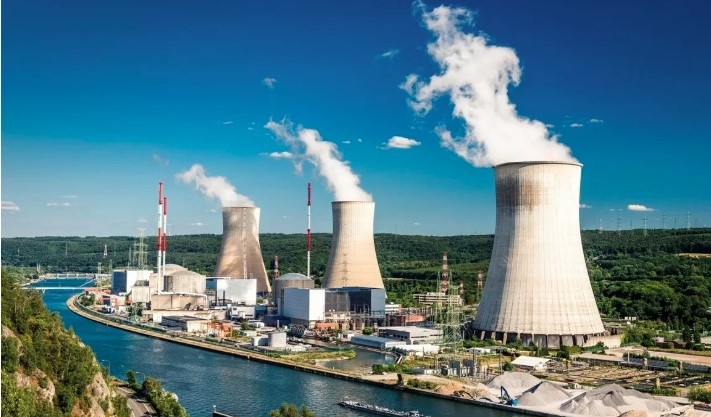Vietnam, Canada boast great opportunities for nuclear energy cooperation
VOV.VN - Canada's Indo-Pacific Strategy's goal of promoting nuclear energy technology exports is seen as potentially relevant to Vietnam amid the Canadian side restarting its nuclear power programme to address energy needs and meet emissions reduction targets.
Nuclear power plays an essential role in the Canadian economy, not only from an energy perspective but also from a commercial perspective as it is an important export product for the North American nation.
For many years, the Canadian side has successfully exported its Candu (Canada Deuterium Uranium) nuclear reactor technology and uranium to many countries. The Candu nuclear reactor technology makes use of heavy water as a moderator and natural uranium as fuel to generate electricity.
They have also developed a third generation nuclear reactor technology called Candu Monark that is more environmentally friendly, boasts a large capacity, is easy to operate and maintain, and has lower costs than previous generations.
Former Canadian Deputy Prime Minister and former Quebec Premier Jean Charest affirmed that the “Land of the Maple Leaf” now possesses the unique Candu technology. “This is the safest nuclear reactor you can find on the market and this technology has now evolved into a new generation called Candu Monark,” he stated.
Charest assessed that nuclear power is one of the priority areas where Canada and Vietnam can co-operate. The two sides have a prime opportunity to share this technology and build nuclear reactors in order to provide their economies with a clean and emission-free energy source.
Nuclear power can be one of the right options to meet emissions reduction goals. Ontario is a typical example of successful efforts which can be done to reduce emissions by adopting nuclear power. The province used to be one of the most polluting places due to its use of coal power, but by 2014 Ontario had completely eliminated this energy source, a factor in helping to reduce emissions by 45 million tonnes of CO2 per year.
The nuclear industry also creates many high-paying jobs for Ontario, contributes about CAD17 billion, equal to about US$11.79 billion, per year to the Gross Domestic Product (GDP) whilst being one of the province's key technology exports. A total of 18 operating nuclear reactors in Ontario account for 13% of Canada's total electricity production as a contribution to making the province one of the cleanest and leading localities in terms of clean technology in the North American country.
Currently, Canada is in the process of researching and deploying the Candu SMR small nuclear reactor using third generation reactor technology.
According to Carl Marcotte, senior vice president of Candu Energy, the Candu SMR is what they have been investing in for the next generation of nuclear technology. The Candu SMR is a very small reactor model which boasts a lower power output and also has a simpler structure, with a factory-made core that can be transported to the installation site.
Canada is pioneering the development of small and even micro reactors, which can be adapted to meet many requirements such as a small town or a small business. These can therefore be seen as suitable for Vietnam, where small and micro reactors can be deployed.
The primary advantage of these reactor designs is that they are more compact and flexible than conventional nuclear reactors.
The Candu SMR is small enough to be built in a factory and transported by conventional means. Its design also allows for deployment in isolated grids, microgrids, remote areas outside the grid, and allows nuclear power plants to expand their capacity by adding reactors as demand increases.
Wayne Farmer, president of the Canada-ASEAN Business Council, stressed that the North American country holds the entire end-to-end solution such as fuel, logistics, transportation, and even engineers who operate Candu technology.
In the process of reducing emissions, gas and nuclear are the two basic energy sources that can replace coal, which still accounts for 70% of the energy share in Asia.
The Canadian side is therefore keen to play a bigger role in nuclear power technology, both with Vietnam and other ASEAN member states interested in reducing carbon emissions, as well as co-operating with the "Land of the Maple Leaf" on the supply of cleaner fuel.
Canada is a world leader when it comes to energy policy and innovation. It supports many successful decarbonisation pathways across many industries. The country can contribute the necessary support and knowledge to help Vietnam and other ASEAN member states achieve their emission reduction goals through nuclear energy.



